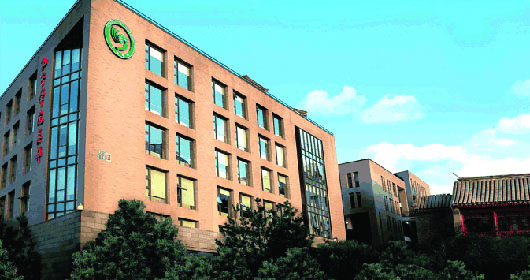by WorldTribune Staff, June 20, 2017
Students at Chinese academic institutions in the United States are getting a heavy course of political indoctrination along with their regular studies, a report said.
The Chinese Confucius Institutes are “operating without oversight and promoting a dangerous political agenda,” the National Association of Scholars (NAS) said.

NAS director of research Rachelle Peterson told The College Fix the centers should be shut down because of the numerous problems that range from the lack of intellectual freedom to political interference.
“Confucius Institutes export the fear of speaking freely around the world. They permit a foreign government intimate influence over college classrooms,” Peterson said. “It’s time to kick them off campus.”
There are 103 Confucius Institutes in operation at U.S. universities. The institutes, which originated in 2005, offer credit courses in Chinese language and culture and are funded by China’s Ministry of Education.
The Ministry of Education’s Office of Chinese Languages Council International, better known as the Hanban, also operates similarly organized Confucius Classrooms at 501 primary and secondary schools in the United States, the NAS said.
The Hanban “has shrouded Confucius Institutes in secrecy,” the NAS said. “At most institutes, the terms of agreement are hidden. China’s leaders have not assuaged worries that the institutes may teach political lessons that unduly favor China.”
Former head of propaganda for the Chinese Communist Party, Li Changchun, described the centers as “an important part of China’s overseas propaganda set-up,” Peterson said.
The Confucius Institutes “come with operational funding and free teachers and textbooks – in some cases enabling a university to charge students tuition for a course that costs the university little to nothing,” Peterson told the The College Fix.
Free trips to China are also offered to administrators who are afforded the opportunity to plug their schools and attract tuition-paying Chinese students.
The institutes are also apt to promote a fuzzy foreign policy to students that advocates “deepening friendly relationships with other nations” in order to “construct a harmonious world,” Peterson said.
Confucius Institutes “tend to present China in a positive light and to focus on anodyne aspects of Chinese culture,” the NAS said. “They avoid Chinese political history and human rights abuses, present Taiwan and Tibet as undisputed territories of China, and develop a generation of American students with selective knowledge of a major country.”
Letters to the Editor __ Subscribe to Geostrategy-Direct __ Support Free Press Foundation
